AI Agents in 2025: The Complete Guide to Autonomous Intelligence Transforming Business and Society
AI Agents in 2025: The Complete Guide to Autonomous Intelligence Transforming Business and Society
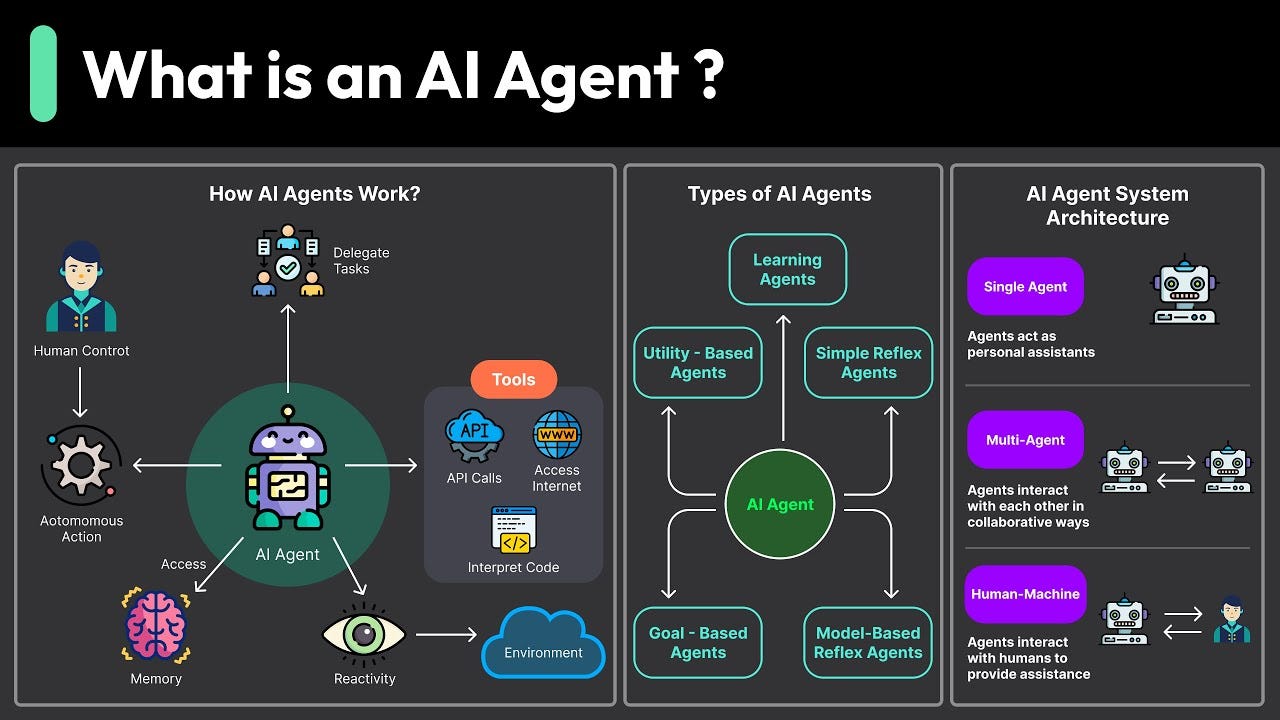
The technological landscape of 2025 has ushered in an unprecedented era of artificial intelligence innovation, with AI agents emerging as the most transformative force reshaping how businesses operate, make decisions, and interact with customers. Unlike the simple chatbots and basic automation tools of yesteryear, today's AI agents represent a quantum leap toward true autonomous intelligence—systems capable of reasoning, planning, and executing complex tasks with minimal human intervention.
As we navigate through September 2025, the conversation around AI agents has shifted from theoretical possibilities to practical implementations. Major corporations across industries are deploying these sophisticated systems to streamline operations, enhance productivity, and unlock new levels of efficiency previously thought impossible. This comprehensive guide explores the current state of AI agents, their revolutionary impact on business and society, and what the future holds for this rapidly evolving technology.
Did you know? According to recent surveys, 99% of developers building enterprise AI applications are currently exploring or developing AI agents, making 2025 truly the "Year of the AI Agent."
Understanding AI Agents: Beyond Simple Automation
An AI agent represents a fundamental evolution in artificial intelligence—a sophisticated software system capable of autonomous action, decision-making, and task execution without constant human oversight. These systems leverage advanced large language models (LLMs) and can interface seamlessly with various tools, databases, and other AI models to accomplish complex objectives.
What sets AI agents apart from traditional automation or simple chatbots is their ability to understand context, plan multi-step approaches, and adapt their strategies based on changing circumstances. They don't just follow pre-programmed scripts—they think, reason, and make informed decisions.
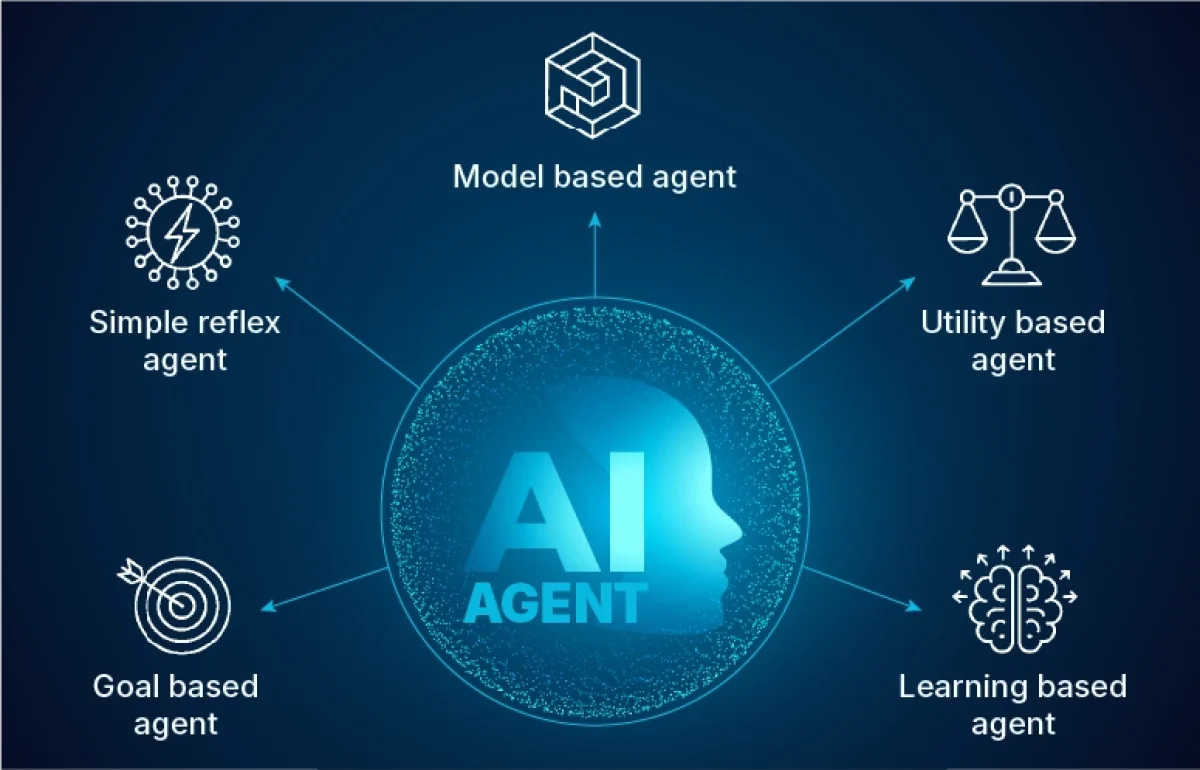
Key Characteristics of Modern AI Agents
Autonomous Operation
Function independently with minimal human intervention, making decisions based on learned patterns and contextual understanding.
Strategic Planning
Break down complex tasks into manageable steps and develop comprehensive execution strategies.
Adaptive Learning
Continuously improve performance through experience and feedback, adapting to new scenarios and requirements.
Tool Integration
Seamlessly connect with various APIs, databases, and software systems to accomplish diverse tasks.
Natural Communication
Understand and respond to human language naturally, facilitating intuitive human-AI collaboration.
Contextual Awareness
Maintain awareness of surrounding environment, constraints, and objectives to make appropriate decisions.
Current Reality vs Future Expectations
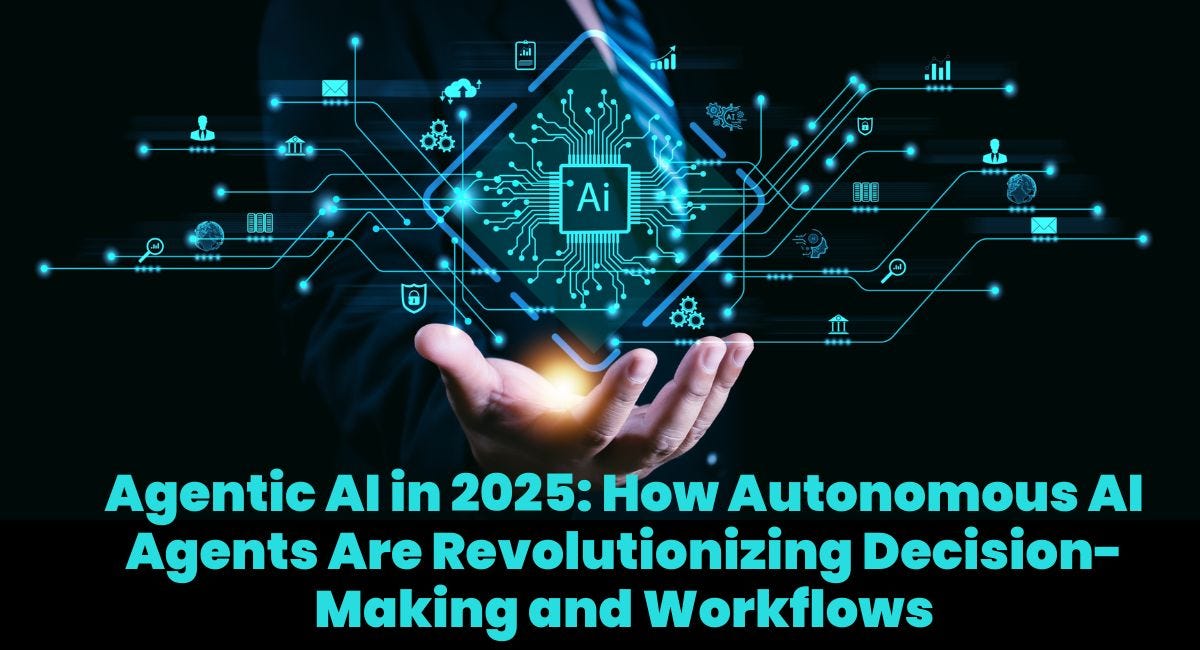
While the promise of AI agents is extraordinary, it's crucial to understand the gap between current capabilities and future potential. Today's "agents" are often sophisticated orchestrations of large language models with enhanced planning and tool-calling capabilities, rather than the fully autonomous systems many envision.
Current State (September 2025)
- Enhanced LLMs with function calling and basic planning capabilities
- Successful automation of routine, well-defined tasks
- Integration with existing business tools and APIs
- Improved natural language understanding and generation
- Still requires human oversight for complex decisions
Future Vision (2026-2030)
- Fully autonomous project scoping and execution
- Advanced reasoning and creative problem-solving
- Seamless multi-agent collaboration and orchestration
- Real-time adaptation to unexpected scenarios
- Minimal human intervention for complex workflows
Expert Insight
"The technology exists today to build sophisticated agents, but most organizations aren't agent-ready. The challenge isn't model capability—it's enterprise readiness and API exposure." - Chris Hay, Distinguished Engineer, IBM
Revolutionary Benefits and Real-World Applications
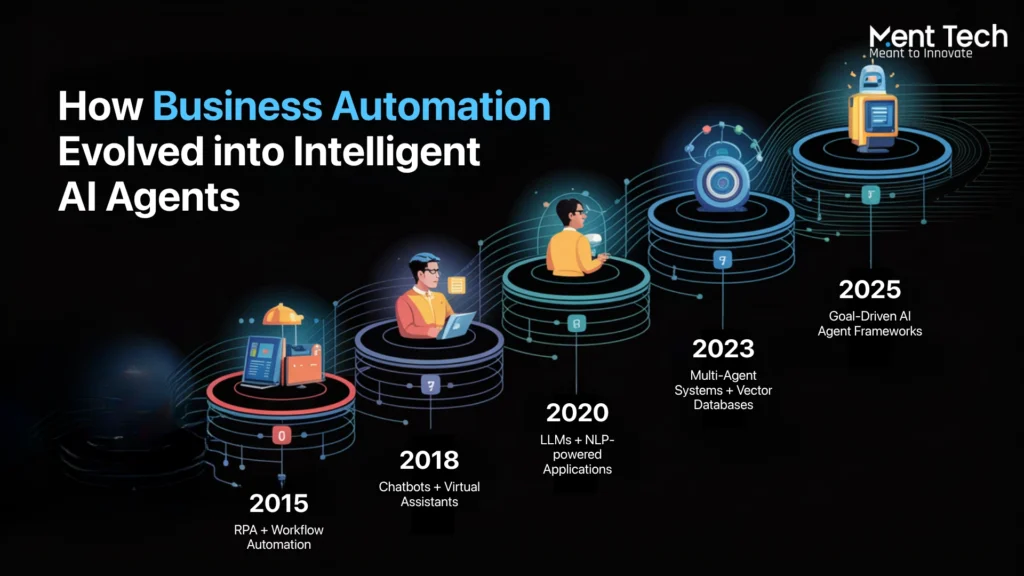
The adoption of AI agents is delivering tangible benefits across industries, fundamentally changing how organizations approach productivity, decision-making, and resource allocation. These intelligent systems are proving their worth through measurable improvements in efficiency, cost reduction, and innovation acceleration.
Transformative Business Benefits
Cost Reduction
Reduce operational costs by 30-60% through intelligent automation of routine tasks and processes.
24/7 Availability
Provide continuous service and support without breaks, holidays, or downtime.
Infinite Scalability
Scale operations instantly to handle increased workload without hiring additional staff.
Enhanced Accuracy
Eliminate human error in data processing, calculations, and routine decision-making.
Data-Driven Insights
Analyze vast amounts of data to uncover patterns and insights human analysts might miss.
Improved Customer Experience
Deliver personalized, instant responses and solutions to customer inquiries and problems.
Innovation Acceleration
Free human workers to focus on creative, strategic, and high-value activities.
Risk Mitigation
Identify potential issues and risks before they become critical problems.
Industry Applications Transforming Business
Healthcare
- • Patient data analysis and diagnosis assistance
- • Treatment plan optimization
- • Drug discovery acceleration
- • Appointment scheduling and management
Finance
- • Automated trading and investment analysis
- • Fraud detection and prevention
- • Credit scoring and loan processing
- • Regulatory compliance monitoring
Retail & E-commerce
- • Personalized product recommendations
- • Inventory management and forecasting
- • Customer service automation
- • Dynamic pricing optimization
Manufacturing
- • Predictive maintenance scheduling
- • Quality control automation
- • Supply chain optimization
- • Production planning and scheduling
Education
- • Personalized learning experiences
- • Automated grading and feedback
- • Student performance analytics
- • Administrative task automation
Real Estate
- • Property valuation automation
- • Market trend analysis
- • Lead generation and qualification
- • Virtual property tours
Strategic Implementation: From Vision to Reality
.png)
Successfully implementing AI agents requires a strategic approach that balances ambitious vision with practical execution. Organizations must carefully plan their agent deployment to maximize value while minimizing risks and ensuring seamless integration with existing systems.
The Strategic Implementation Framework
Assessment & Planning
- • Identify high-value use cases
- • Assess current infrastructure readiness
- • Define success metrics and KPIs
- • Evaluate data quality and availability
- • Determine required integrations
Pilot Development
- • Start with low-risk, high-impact projects
- • Build minimum viable agents (MVAs)
- • Implement robust testing protocols
- • Establish feedback loops
- • Monitor performance metrics closely
Scale & Optimize
- • Gradually expand successful agents
- • Implement enterprise-wide deployment
- • Optimize performance and efficiency
- • Develop agent orchestration systems
- • Ensure ongoing maintenance and updates
Critical Success Factors
Data Readiness
Ensure your data is clean, accessible, and properly structured. AI agents are only as good as the data they can access and process. Invest in data governance and quality initiatives before agent deployment.
API Infrastructure
Develop robust APIs that allow agents to interact with your existing systems securely and efficiently. Most organizations underestimate the importance of API-first architecture for successful agent deployment.
Change Management
Prepare your workforce for AI collaboration. Provide training, address concerns, and clearly communicate how agents will augment rather than replace human capabilities.
Security & Governance
Implement comprehensive security measures and governance frameworks from day one. AI agents will have access to sensitive data and systems, making security paramount.
Implementation Timeline Expectations
Navigating Challenges and Critical Considerations
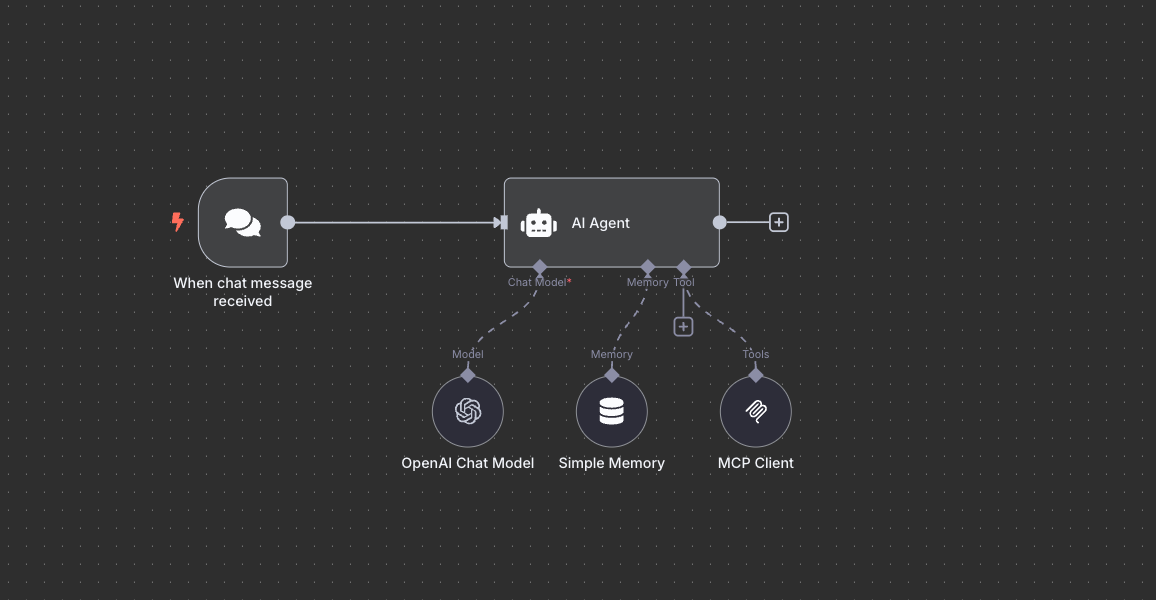
While AI agents offer tremendous potential, their implementation comes with significant challenges that organizations must carefully navigate. Understanding these obstacles and preparing appropriate mitigation strategies is crucial for successful deployment and long-term value realization.
Primary Implementation Challenges
Technical Complexity
Building robust AI agents requires sophisticated technical expertise in machine learning, system integration, and software architecture.
Data Quality Issues
AI agents require high-quality, well-structured data. Poor data quality leads to unreliable agent performance and decision-making.
Employee Resistance
Workers may fear job displacement or resist changes to established workflows and processes.
Security Vulnerabilities
AI agents with system access can become security risks if compromised or if they malfunction.
Regulatory Compliance
Ensuring AI agent decisions comply with industry regulations and legal requirements can be complex.
ROI Uncertainty
Measuring the return on investment for AI agents can be challenging, especially for complex, long-term implementations.
Governance and Risk Management
Transparency
Ensure agent decision-making processes are explainable and auditable.
Accountability
Establish clear ownership and responsibility for agent actions and outcomes.
Reversibility
Implement rollback mechanisms for critical agent decisions and actions.
Critical Risk Alert
"The scale of risk with AI agents is significantly higher than traditional automation. While humans can only do limited damage in a given time frame, AI agents can execute actions at unprecedented speed and scale. Organizations must implement robust safeguards and human oversight mechanisms." - Marina Danilevsky, Senior Research Scientist, IBM
Industry Impact: Real-World Transformation Stories
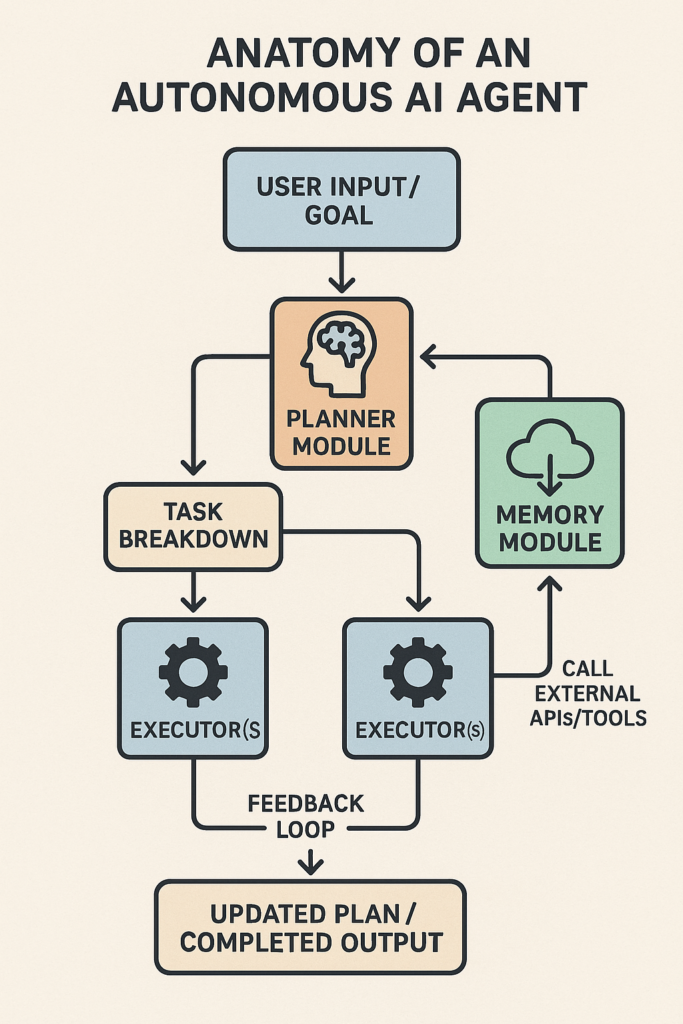
Across industries, forward-thinking organizations are already witnessing the transformative power of AI agents. These real-world implementations demonstrate the tangible benefits and practical applications that are driving widespread adoption throughout 2025.
Healthcare Revolution
Mayo Clinic AI Diagnostic Assistant
Deployed AI agents that analyze medical imaging data to assist radiologists in early cancer detection, reducing diagnosis time by 40% while improving accuracy rates.
Kaiser Permanente Care Coordination
AI agents now manage patient appointment scheduling, medication reminders, and care plan coordination across their integrated health system.
Financial Services Innovation
JPMorgan Chase Fraud Prevention
Advanced AI agents monitor transaction patterns in real-time, automatically flagging and investigating suspicious activities across millions of daily transactions.
Goldman Sachs Trading Optimization
AI agents analyze market data, execute trades, and optimize portfolios autonomously, making thousands of micro-decisions per second.
Retail Transformation
Amazon Supply Chain Intelligence
AI agents predict demand, optimize inventory levels, and coordinate logistics across global fulfillment networks, ensuring products are available when and where customers need them.
Manufacturing Excellence
Tesla Production Optimization
AI agents monitor production lines in real-time, predicting equipment failures and optimizing manufacturing processes to maintain consistent quality and efficiency.
Emerging Success Patterns
Expert Insights: Industry Leaders Weigh In
Maryam Ashoori, PhD
Director of Product Management, IBM watsonx.ai
"We should empower employees to decide how they want to leverage agents, but not necessarily replace them in every single situation. An agent might transcribe and summarize a meeting, but you're not going to send your agent to have this conversation with me. The key is finding the right balance between automation and human expertise."
Marina Danilevsky
Senior Research Scientist, Language Technologies, IBM
"The current AI boom is absolutely FOMO-driven, and it will calm down when the technology becomes more normalized. People will start to understand better what kinds of things work and don't. Enterprises need to be careful not to become the hammer in search of a nail."
Chris Hay
Distinguished Engineer, IBM
"If we do this right, AI is there to augment humans to do things better. If AI is done correctly, then it frees us up to do more interesting things. The exciting work is going to be about how enterprise-ready organizations are, not just how good the models are."
Vyoma Gajjar
AI Technical Solutions Architect, IBM
"I don't see AI agents replacing jobs overnight, but they'll definitely reshape how we work. Companies need to be intentional about how they introduce AI. Governance frameworks focused on fairness, transparency, and accountability are going to be key to successful implementation."
Key Industry Consensus Points
Future Trends: What's Next for AI Agents?
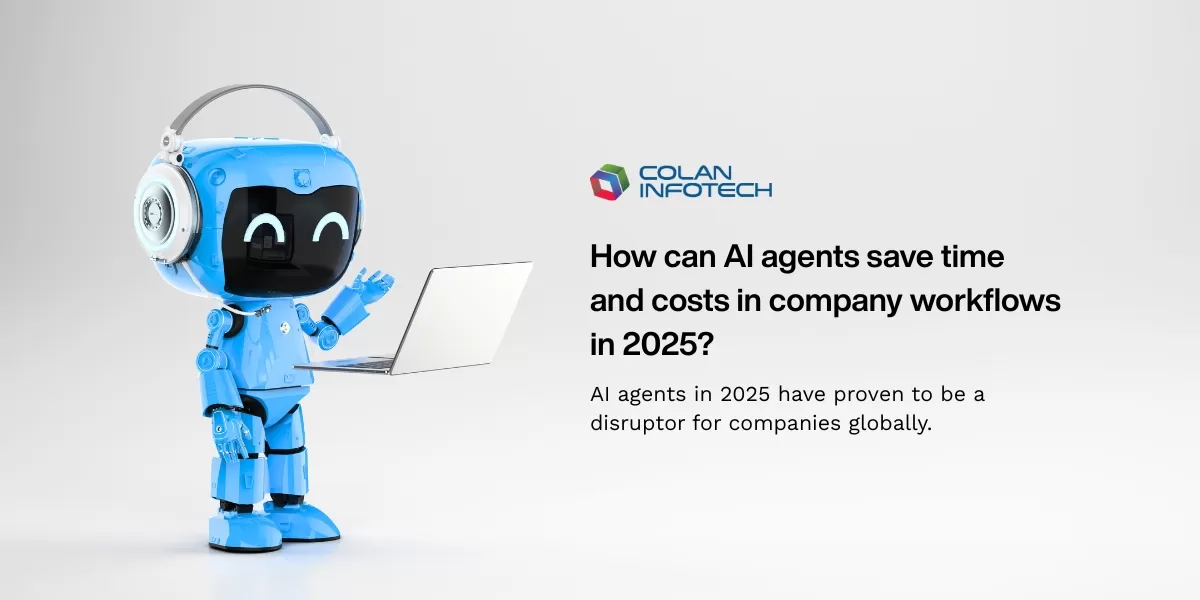
As we progress through 2025 and look toward the future, several emerging trends are shaping the evolution of AI agents. These developments promise to unlock even greater capabilities and transform how we interact with intelligent systems across all aspects of life and work.
Emerging Technological Advances
Multi-Agent Orchestration
Advanced orchestration systems will coordinate multiple specialized AI agents working together on complex projects, each contributing unique expertise while maintaining seamless collaboration.
Enhanced Reasoning Capabilities
Next-generation models will feature significantly improved chain-of-thought reasoning, enabling agents to handle more complex logical problems and multi-step decision-making processes.
Multimodal Intelligence
AI agents will seamlessly process and understand text, images, video, audio, and sensor data simultaneously, enabling more comprehensive environmental awareness and decision-making.
Edge AI Integration
AI agents will operate directly on edge devices, reducing latency and enabling real-time decision-making without constant cloud connectivity, crucial for IoT and mobile applications.
Continuous Learning Systems
Agents will continuously adapt and improve their performance based on real-world feedback and experiences, becoming more effective over time without requiring complete retraining.
Human-AI Collaboration Interfaces
Advanced interfaces will enable more natural and intuitive collaboration between humans and AI agents, including gesture recognition, emotional intelligence, and contextual communication.
Market Predictions and Industry Evolution
Societal Impact and Transformation
Global Accessibility
AI agents will democratize access to sophisticated capabilities, enabling small businesses and developing economies to compete on a more level playing field with larger organizations.
Sustainability Focus
Intelligent agents will optimize resource usage, reduce waste, and contribute to environmental sustainability through more efficient processes and decision-making.
Education Revolution
Personalized AI tutors and learning agents will transform education, providing customized learning experiences adapted to individual needs and learning styles.
Frequently Asked Questions
What's the difference between AI agents and traditional chatbots?
Traditional chatbots follow pre-programmed scripts and can only respond to specific commands. AI agents, on the other hand, can reason, plan, make decisions, and execute complex multi-step tasks autonomously. They understand context, adapt to new situations, and can use various tools and systems to accomplish their objectives without constant human guidance.
Will AI agents replace human workers?
AI agents are designed to augment human capabilities rather than replace workers entirely. While they will automate routine and repetitive tasks, they will free humans to focus on creative, strategic, and interpersonal work that requires emotional intelligence, complex judgment, and innovation. The goal is human-AI collaboration, not replacement.
How secure are AI agents for business use?
AI agents can be highly secure when implemented with proper governance frameworks, encryption, access controls, and audit trails. However, security requires careful planning, regular monitoring, and robust fail-safe mechanisms. Organizations must implement comprehensive security protocols and maintain human oversight for critical decisions to mitigate risks.
What's the typical ROI timeline for AI agent implementation?
ROI timelines vary by use case and implementation complexity. Simple automation tasks may show returns within 3-6 months, while comprehensive enterprise deployments typically realize significant ROI within 12-18 months. Factors affecting timeline include data readiness, system integration requirements, and organizational change management effectiveness.
Do I need technical expertise to implement AI agents?
While technical expertise is helpful, many modern AI agent platforms offer no-code or low-code solutions that business users can implement. However, complex enterprise deployments typically benefit from technical support, either through internal IT teams, external consultants, or AI vendor partnerships. The key is starting with simple use cases and scaling up as expertise grows.
How do AI agents handle unexpected situations or errors?
Modern AI agents include error handling protocols, fallback mechanisms, and escalation procedures. When encountering unexpected situations, they can request human assistance, revert to safe defaults, or pause operations pending review. Advanced agents also learn from errors to improve future performance, though human oversight remains crucial for critical processes.
The AI Agent Revolution is Here – Are You Ready?
As we've explored throughout this comprehensive guide, AI agents represent more than just another technological trend—they embody a fundamental shift in how we approach work, decision-making, and problem-solving. The organizations that embrace this transformation today will be the leaders of tomorrow's intelligent economy.
Key Takeaways for Success
Ready to Transform Your Business?
Don't let your competitors gain the advantage. The AI agent revolution is happening now, and early adopters are already seeing remarkable results. Whether you're looking to improve efficiency, reduce costs, or unlock new capabilities, AI agents offer unprecedented opportunities for growth and innovation.
Article Summary
The essential guide to AI agents in 2025 and beyond
AI agents in 2025 represent the most significant technological advancement in artificial intelligence since the introduction of large language models. These autonomous systems are transforming industries by providing unprecedented levels of automation, intelligence, and efficiency in business operations.
From healthcare and finance to manufacturing and retail, organizations worldwide are implementing AI agents to automate complex workflows, enhance decision-making, and unlock new competitive advantages. With 99% of developers exploring agent technologies and proven ROI improvements of 40% or more, the adoption momentum is undeniable.
Success in the AI agent era requires strategic planning, proper governance, and a focus on human-AI collaboration rather than replacement. Organizations that invest in data readiness, API infrastructure, and comprehensive security frameworks while maintaining human oversight for critical decisions are positioned to realize the full potential of this revolutionary technology.
As we progress through 2025 and beyond, AI agents will continue evolving toward true autonomous intelligence, multimodal capabilities, and seamless integration into every aspect of business and society. The question is not whether AI agents will transform your industry—it's whether you'll be leading that transformation or following in its wake.